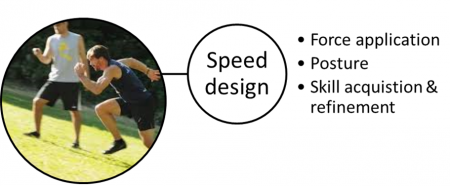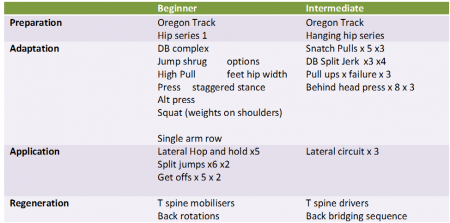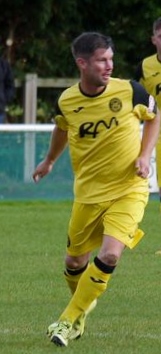Main Menu
Latest Blog Entry
User login
Athletic Development in Schools
“You can power clean 9000lbs, but if you can’t synchronise, you won’t be able to apply it.”
Where we are now
- Limited range of motion in thoracic spine
- Tight hip flexors
- Poor ankle, knee, hip integrity
- Poor body composition
- Poor running mechanics
- Unstable torso
Putting the athletic into LTAD
Sprint mechanics
After lunch we looked at putting this theory into practice, more specifically at sprint mechanics and a resistance training session.
I kept the speed session simple, and just used these 3 points gained from Gary Winckler:

Winckler went through this in more detail at GAIN, but in summary he says that:
- Posture highly dependent on the means of force application.
- A correct force application should result in an appropriate posture.
- A correct posture will improve the result of a good force application.
(There is that word posture again). I then took the coaches through a practical warm up drill (courtesy of Jim Radcliffe) that worked on all these aspects. The use of some rusty old athletics hurdles was especially poignant as they resembled the fluidity of the coaches’ hips!
Strength training
The final session was the work done in the gym. Here I showed two sessions that follow my “4 cornerstones” principle of preparation, adaptation, application and regeneration.
Both are designed for field hockey players in mid season. The beginner is for those relatively new to resistance training, but with sound mechanics. The intermediate is for those who have been training for at least 1 year.

I went through the practical aspects of these sessions, plus the rationale behind each exercise and the sequencing. Our aim is to get the players more athletic, robust and to be able to express this on the hockey pitch: where it counts.
I start assuming the players have either been hunched over in classrooms, or spent time driving in the car to get to training: we have to get them moving. We then work from fast to slow, co-ordinated and synchronised to more simple exercises.
Each session finishes with the players moving fast and in different directions, followed by regeneration work to help prepare for the next training period.
Coaching the people
We discussed at some length ways of getting young female players involved and enthusiastic about resistance training (the boiling frog scenario).
We also discussed how to get young male athletes away from the “look good nekked” programmes and instead following programmes that help them as athletes. This is an ongoing source of frustration, but these coaches at least recognise what should be happening.
Brett Richmond and Tom Tuthill at Bloxham School have done a great job with their gym: very well designed.
Thanks to the school for hosting, thanks to the coaches and teachers for getting stuck into the learning and asking some really good questions.
If you would like to host a CPD event for p.e. and games teachers at your school, please contact us.
Client Testimonials
 Scott Rogers: Footballer
Scott Rogers: Footballer
I ruptured my ACL back in August 2015 playing football for Tiverton Town FC. Not only have I just returned to play again less than a year later with my knee feeling as good as it did prior to my injury, but my my body in the whole feels like it was 10 years ago […]
More


Comments
[…] Bloxham School Athletic development in schools […]